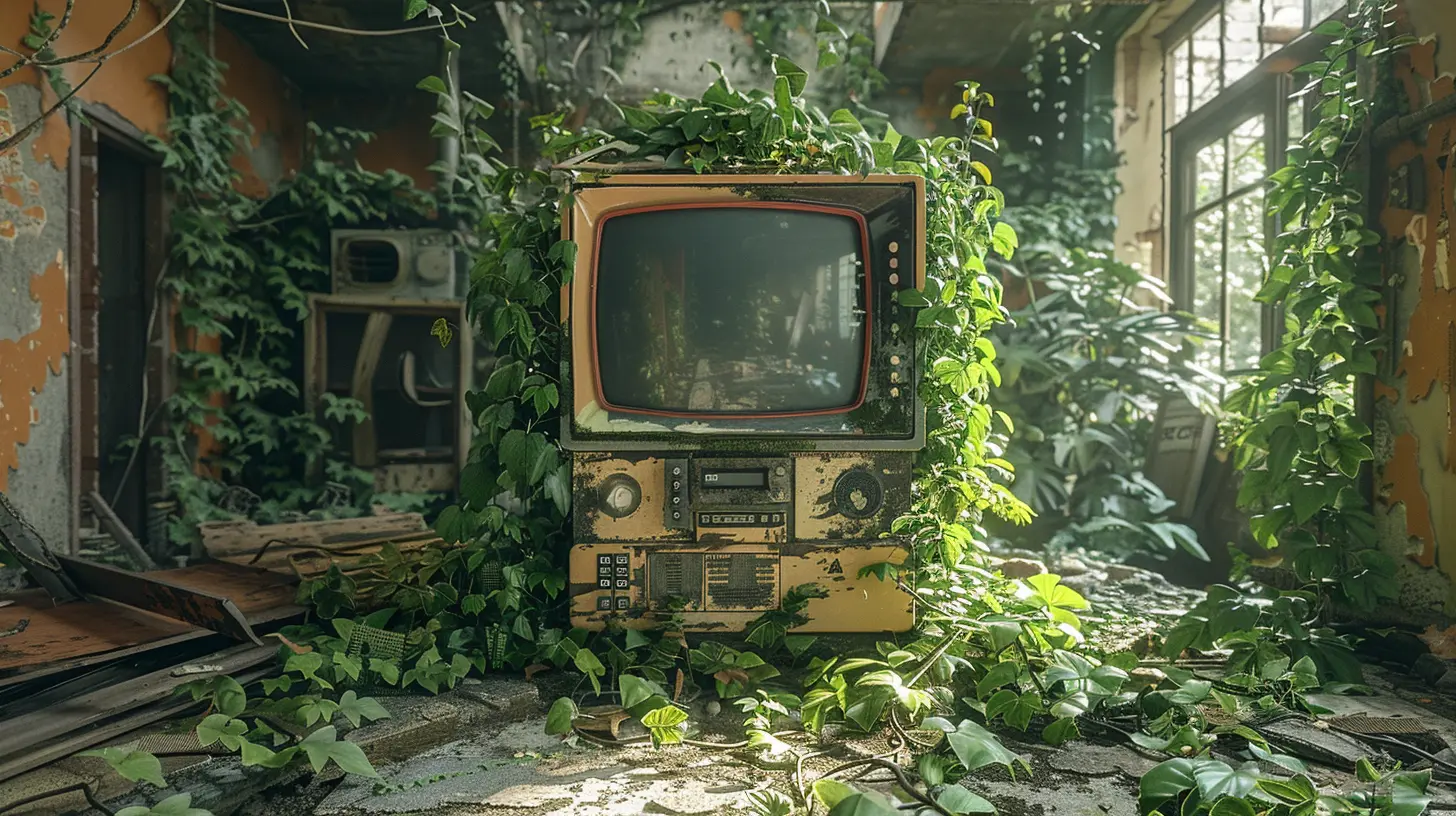Virtual Reality and Mental Health: The Benefits and Risks of Escapism
24 February 2025
Virtual reality (VR) is no longer just a cool tech gimmick or something you see in sci-fi movies. It’s here, it’s evolving, and it’s impacting lives in ways we couldn’t have imagined a decade ago. One of the most intriguing areas where VR is making waves is mental health. But let’s face it, pairing virtual worlds with mental well-being raises some eyebrows. Is VR just an advanced escape hatch from real-life challenges, or does it stand tall as a valuable tool for personal growth and healing? Like most things in life, the answer isn’t black and white; it’s a mix of both.
In this article, we’ll dive into the exciting benefits VR brings to mental health, dissect some of the risks attached to escapism, and figure out what it means for you, me, and anyone else living in this tech-driven world.
The Rise of Virtual Reality in Mental Health
If we zoom out for a second, VR has been making a splash across various industries, from gaming to education. But when it comes to mental health? That’s where things get really interesting. Picture this: slipping on a VR headset and being instantly transported to a serene beach, a cozy cabin in the mountains, or even your favorite childhood spot you haven’t seen in years. Sounds magical, right? But VR isn’t just about feel-good fantasy; it’s being used by therapists, researchers, and even regular folks to address some of the most serious mental health challenges.Here’s the kicker: VR can create controlled, immersive environments. This means therapists can use it for exposure therapy, mindfulness exercises, cognitive behavioral therapy (CBT), and even stress relief. In fact, VR is already helping people reduce anxiety, manage PTSD, and deal with phobias in ways that traditional therapy models often struggle to accomplish.
But before we get too carried away, let’s hit pause for a second. Escapism is a huge part of why VR works so well — but it’s also the elephant in the room. If you’re wondering whether escaping reality via VR is a good thing, bad thing, or something in between, don’t worry. We’re about to break it down.
The Benefits of VR for Mental Health: When Escapism Works Like Magic 🪄
1. Stress Relief: Stepping Away (Virtually) Can Be a Real-Life Saver
Life is stressful. Deadlines, responsibilities, personal drama — it all piles up. VR provides an instant escape that helps you reset your mind. Immersing yourself in a tranquil virtual world for 15 minutes can work wonders, calming your nerves and helping your brain refocus. It’s like taking a mental vacation without booking a flight.And let’s be honest, sometimes zoning out in a peaceful VR environment is way more effective than scrolling endlessly on social media, hoping for that dopamine hit.
2. Exposure Therapy: Facing Fears Without the Sweat
Afraid of spiders? Heights? Talking in public? Exposure therapy is a gold-standard treatment for phobias, and VR takes it to the next level. By simulating situations that trigger fear in a safe and controlled way, VR allows people to progress at their own pace. It’s like a practice round for your brain, helping you desensitize to fears without the real-world risks.3. PTSD Treatment: Reclaiming Control, Step by Step
Post-traumatic stress disorder (PTSD) can leave people feeling stuck in the past, replaying traumatic events over and over. VR is helping individuals work through these experiences head-on, but within a controlled and supportive environment. For many veterans and survivors of trauma, VR-based therapies are offering a path to recovery that feels less intimidating than traditional methods.4. Mindfulness and Meditation: Find Your Zen, Virtually
Meditation can be hard. I mean, sitting still while trying to quiet a racing mind is easier said than done. But VR can make mindfulness more engaging by guiding you through calming landscapes or structured meditative exercises. Think of it as yoga for your brain, minus the sweaty studio.5. Social Connection: Bridging the Gap
Feeling lonely? Social VR platforms allow users to interact with others in shared virtual spaces. Whether it’s attending group therapy sessions or hanging out with friends in a virtual café, VR can combat feelings of isolation while offering opportunities for genuine human connection in a safe environment.
The Risks of VR and Escapism: When Escaping Becomes a Problem 🚨
Okay, here’s the flipside of all that VR goodness: escapism isn’t always sunshine and rainbows. Like any powerful tool, VR needs to be used responsibly, or it can mess with your mental health instead of helping it.1. Addiction: Living in Virtual Worlds Instead of Reality
Let’s get real — getting lost in VR can be addictive. The virtual world can feel more rewarding than the real one. Why deal with a frustrating argument in real life when you can chill on a digital beach instead? But here’s the thing: too much escapism can create a cycle of avoidance that makes real-life responsibilities and challenges even harder to manage.2. Detachment from Reality: Where’s the Line?
Ever feel like you’ve lost track of time after binge-watching your favorite show? VR can amplify that tenfold. Spending too much time in immersive worlds can blur the line between what's real and what’s virtual, making it harder to stay grounded. This detachment can negatively impact relationships, work, and your sense of self.3. Motion Sickness and Eye Strain
Here’s a practical risk you might not think about: the physical side effects of VR. Motion sickness, headaches, and eye strain are common issues for heavy users. While these don’t directly affect mental health, they can make VR feel like more trouble than it’s worth if not managed properly.4. Overdependence: A Crutch That Could Backfire
While VR can provide temporary relief from stress or anxiety, relying on it too much can backfire. Think of it like leaning on a crutch for too long — instead of building resilience, you could end up relying on the escape VR offers, without addressing the root cause of your struggles.
Finding the Balance: VR as a Tool, Not a Trap
So, how do we strike the right balance? The key lies in viewing VR as just one part of a larger mental health toolkit. Like any tool, its effectiveness depends on how you use it. Here are a few tips:- Set Time Limits: VR is amazing, but moderation is key. Treat it like any other screen time — give yourself boundaries.
- Combine with Therapy: VR works best when paired with professional guidance. A therapist can help you use VR in a way that adds value instead of creating dependency.
- Stay Grounded: Balance virtual time with real-world activities. Connect with loved ones, spend time in nature, and engage in physical exercise to keep yourself grounded.
Final Thoughts: To Escape or Not to Escape?
Virtual reality offers a fascinating blend of opportunities and challenges when it comes to mental health. Sure, escaping into a virtual world can be a lifesaver in small doses, offering comfort, relief, and even breakthroughs in therapy. But it’s not a cure-all. Like anything shiny and new, it comes with risks that need careful consideration.The bottom line? VR is an incredible tool, but it’s not a substitute for facing life head-on. So go ahead, grab that headset, take a breather in a serene virtual meadow, but don’t forget to come back to reality — because at the end of the day, that’s where life truly happens.
all images in this post were generated using AI tools
Category:
Virtual RealityAuthor:

Brianna Reyes
Discussion
rate this article
10 comments
Amber McIntosh
Balance is key: escape wisely for mental health.
March 16, 2025 at 4:41 PM

Brianna Reyes
Absolutely! Finding the right balance in virtual reality can enhance mental well-being while preventing potential pitfalls.
Quincy Fuller
Fascinating insights on VR's dual impact!
March 7, 2025 at 4:01 AM

Brianna Reyes
Thank you! I'm glad you found the insights valuable. VR's potential is indeed a double-edged sword.
Kassidy Morales
What a thought-provoking read! Exploring the balance between virtual reality's benefits and risks on mental health is essential. Thank you for shedding light on such an important topic—looking forward to more insights!
March 6, 2025 at 3:32 PM

Brianna Reyes
Thank you for your thoughtful comment! I’m glad you found the exploration valuable, and I appreciate your interest in this important topic. More insights are on the way!
Karina Price
Balancing benefits and risks.
March 4, 2025 at 5:38 AM

Brianna Reyes
Thank you for your comment! Indeed, balancing the benefits of escapism through virtual reality with potential risks is crucial for its effective use in mental health.
Yvette McVicar
While virtual reality offers innovative therapeutic potential for mental health, it also risks fostering unhealthy escapism. Striking a balance between immersive experiences and real-world engagement is crucial; otherwise, users may find themselves in a cycle of avoidance rather than addressing underlying emotional challenges.
March 3, 2025 at 5:52 AM

Brianna Reyes
Thank you for your insightful comment! You highlight an important consideration in the use of virtual reality for mental health—finding that balance between therapeutic engagement and the risk of escapism is essential for meaningful recovery.
Clara Nguyen
This article insightfully explores the dual nature of virtual reality in mental health—highlighting its potential for therapeutic escapism while cautioning against excessive use and potential disconnection from reality.
March 1, 2025 at 4:27 PM

Brianna Reyes
Thank you for your thoughtful comment! I'm glad you found the exploration of both the benefits and risks of virtual reality in mental health insightful. It's crucial to strike a balance in its use.
Nix Powell
What an insightful read! It’s fascinating how virtual reality can be both a refuge and a challenge for mental health. Balancing escapism with reality is key. I’m eager to see how VR can evolve to support well-being while navigating its potential pitfalls. Thanks for sharing this!
February 28, 2025 at 5:15 PM

Brianna Reyes
Thank you for your thoughtful comment! I completely agree that balancing escapism and reality is crucial in using VR for mental health. Exciting times ahead as we explore its potential!
Meagan McGinnis
Virtual reality offers unique therapeutic benefits for mental health, promoting relaxation and exposure therapy. However, potential risks include addiction and detachment from reality that warrant careful consideration.
February 28, 2025 at 4:15 AM

Brianna Reyes
Thank you for highlighting the dual nature of virtual reality in mental health. It's crucial to balance its therapeutic advantages with awareness of the potential risks. Your insights contribute to a deeper understanding of this evolving field.
Mason McGill
Great article! It's important to explore how virtual reality can both uplift and challenge mental health. Balance is key for a healthier experience!
February 27, 2025 at 6:07 AM

Brianna Reyes
Thank you! I’m glad you found it insightful. Balance is indeed essential when navigating the complexities of virtual reality and mental health.
Ella McMillan
This article insightfuly explores the dual nature of VR in mental health, highlighting its potential for therapeutic escapism while cautioning against overreliance. A balanced perspective is essential for effective use.
February 24, 2025 at 4:31 AM

Brianna Reyes
Thank you for your thoughtful comment! I appreciate your recognition of the need for a balanced approach to VR in mental health.
MORE POSTS

Co-op Gaming in Virtual Reality: Tips for Team-Based Success

How to Check Your PC’s Game Ready Status

The Evolution of Card Games: From Paper to Digital

How to Handle Defeat Gracefully: Lessons from Multiplayer Losses

The Future of VR and Game Remastering

Breaking Down Mobile Game Genres: A Comprehensive Guide

Mastering Solo vs Squad Play in Battle Royale